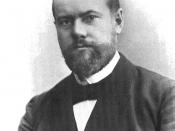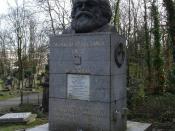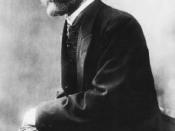Emile Durkheim was a man of many theories. Most of his theories were based on the reasons of religion and why societies and people believe in, and honor, their religions. Durkheim had more of a functionalist's point of view.
Most of his career was spent studying religion in the small traditional societies. He accepted that religion was an illusion, which was a theory also accepted by Karl Marx and Max Weber. Durkheim connected religion with the overall nature of the institutions of societies. Some of his work is based on totemism, which was practiced by Australian native societies. He believes that the totem is a sacred object, and doesn't just serve as a symbolic significance (Introduction to Sociology, 562).
He also found three similar characteristics of religions all around the world, which include knowing the differences between things that are sacred and profane, a set of guidelines which lead the religion's spirituality and beliefs, and a set of rituals.
The sacred things in life are the ones that people don't necessarily understand, but allow their faith to guide what they don't know (Enduring Issues in Sociology, 221). He believed that the sacred objects were held apart from the day-to-day existence, which is the field of profane. So basically, he felt that the profane things in life are those which are not sacred. For example, the totem is a sacred object because it is looked upon that religion as their symbol and what they are (Introduction to Sociology, 562). The guidelines for a religion's spirituality give reasoning for why things happen in people's lives and why such major social transitions are experienced. A few examples include birthdays, death, marriage, success, failure, and crisis. The set of rituals constitute the daily practices and ceremonies of religions (Enduring Issues in Sociology, 221). Durkheim...



Interesting
Good paper with good info. A little more expansion on a few of the key points would be great.
2 out of 2 people found this comment useful.